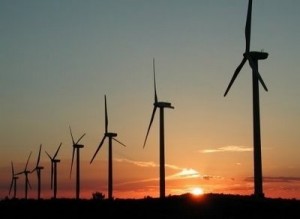
To say that the Rajoy government inherited a rough legacy is rather an understatement. The economy appears to be in even worse shape than the incoming Partido Popular government first thought and even as they chop away at public spending, confidence at home and abroad continues to slip. Less than three months in and Rajoy and his party were forced to restructure deficit reduction goals, much to the chagrin of austerity-minded allies in Brussels and Berlin.
Unfortunately, the government’s campaign to rein in spending and reduce the deficit does not yet address one particularly large elephant in the room – namely, Spain’s beleaguered energy sector.
Sure, we’ve seen the Rajoy government chip away at the poorly planned renewable subsidy program, including a suspension of support for any new projects in late January. Yes, we’ve now seen reports out of Madrid that these rollbacks may indeed spread to existing solar and wind efforts, from Barcelona to Seville. However, these actions seem more like window-dressing when it comes to taking on the energy sector’s real problem – paying down the more than €24-billion debt it’s accrued over the last few years.
The sector took on this debt as unsustainable subsidy programs for the renewable and coal industries were put into place without passing the costs of such efforts on to the consumer. In an attempt to keep electricity prices low, the government shifted the load on to the country’s largest utility companies, while backing the debt burden itself. The energy deficit reduction goal is especially important given the fact that the amount is not currently included in national figures, but will be if not dealt with soon.
This particularly painful task has fallen to new Industry Minister José Manuel Soria, who has attempted to strike an ambiguous but functional tone since taking office, insisting that the weight of the debt burden must be shared throughout the industry, without offering too many specifics. The point, it seems, is to push reforms and cuts through without any one group feeling they will take the brunt.
However, Soria’s approach has done little to calm the nerves of energy industry groups who bridled at the suggestion that the debt burden could fall on the shoulders of traditional energy actors. In late February, a coalition representing Iberdrola, Gas Natural and Endesa utilities rejected debt talks, refusing to accept a write-down of the loans taken to pay for alternative energy support programs, according to Bloomberg. There have also been calls from the natural gas and nuclear power sectors for assurances that the deficit reduction plan will not result in new levies for their respective industries.
Further complicating the issue, Soria must accomplish this task without squeezing the breath out of Spain’s renewable sector. Once thought of as a driving force of growth and entrepreneurship, the renewable industry has suffered a massive crisis of confidence after both the Zapatero and Rajoy governments signalled a willingness to reverse prior agreements on funding and support. The Zapatero administration’s actions led to a series of lawsuits, filed on behalf of 15 energy investment funds, which still loom over Madrid.
While wind firms have fared better than their solar counterparts, thanks to a lower starting point for government funding, and some solar companies have found ways to weather the storm by looking beyond the Iberian Peninsula, the industry overall is hurting. The renewable industry still boasts about 160,000 jobs in Spain at the moment, but it has shed about 30,000 since the first restrictions on subsidies came into play in 2008. Furthermore, industry groups have predicted a loss of about 300,000 potential jobs between now and 2020 thanks to further restrictions on the sector. That prediction might be high, but given the current 23-percent unemployment rate, any further job losses would be difficult to ignore.
For now, Soria and the new government still have the opportunity to look beyond their own budgets for aid, including the possibility of tapping into European Union funds to help expand the country’s much-needed grid connection program. Long delayed thanks to opposition from French industry and political leaders, Spain’s natural gas pipeline connectivity to the north will likely be addressed in a new EU energy grid plan to be released later in the spring.
Leave a Reply
You must be logged in to post a comment.